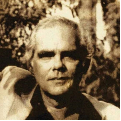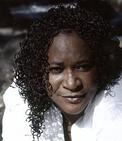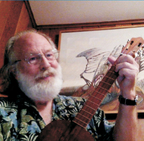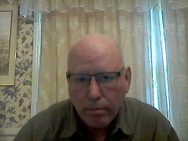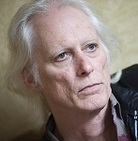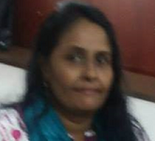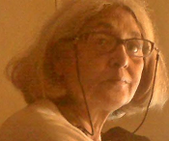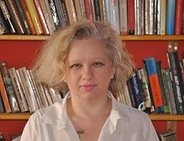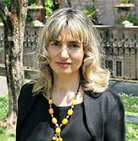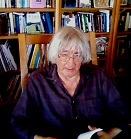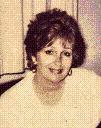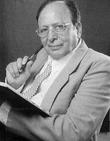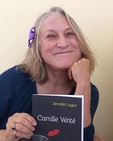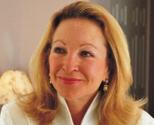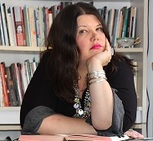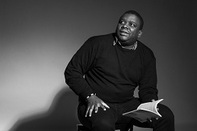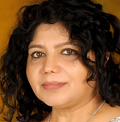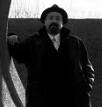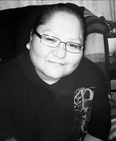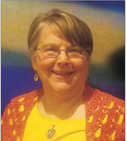Authors
Keep in touch
Essays on Publishing
Two essays on publishing by Victoria Valentine (publisher/editor/author, USA )
and Adam Donaldson Powell (author/reviewer, Norway )
Writers and Small Press Publishers: A View From Both Sides
As a writer and independent small press publisher, I have a grasp of both sides of the issue - or possibly a better word would be quandary, of the writer seeking publication; not only seeking publication but also desiring well deserved compensation for the hard work they have done. Believe it or not - we're both in the same boat. It's just as difficult for me to promote and market my products as it is for most writers to have manuscripts or poetry published in a quality, paying magazine - or any fine non-paying magazine for that matter. Plain and simple; there are more writers than there are markets.
Independent small press is absolutely essential for writers, now more than ever - and unfortunately, for a variety of valid reasons, small press is shrinking. The number one reason is lack of funding and the inability to find an experienced work force willing to offer their talents for free, or for the next to nothing pay that most independent publishers can't really afford to offer. It's not easy to get people to work for free! Yet many to most independent publishers do work for free, or for very little compensation; merely enough to pay the publishing expenses. If some writers did not realize this, I hope by the end of this article, they will.
Writers must come to terms with the fact that publishing is expensive and time consuming. A publisher's time is as valuable as a writer's time, and both should be rewarded and compensated. If there is a slight balance in favour of the publisher, it's because publishing is a risk we take for writers, emotionally, physically and financially. When we accept a manuscript, it becomes our manuscript, a part of us that we will work on for endless hours, pampering and polishing until it gleams from beginning to end, when it's finally time to be sent off to print. And that's only the beginning.
Independent publishing is done by dedicated individuals who are definitely not in it for the money, but rather for love and to keep the publishing doors open, even a mere crack, so that new writers, all writers actually, may have an opportunity to enter. This is a partnership - a two way street. If I am willing to invest every spare moment of my free time to turn your manuscript into a fabulous book, then you must be willing to help me pay the costs, and do most of the promotional and marketing legwork.
What are the odds of your manuscript finding its way through the door, no less miraculously float down the hallways of one of the major publishing houses? I'm sad to say - next to nil. And yet I have been asked numerous times by writers whom I publish in my magazines; "Do I receive a free contributor copy of Skyline Magazine?" Of course you do NOT receive a free copy is what I'd like to say, but I graciously explain that I am a woman who works a full time job, and as a sideline publishes quality magazines and single-handedly mans a recently established book publishing house - ALONE. From the outside looking in, one would find it hard to believe that a prestigious looking, elegantly packaged magazine such as Skyline Literary Magazine has no funding - no backing - no advertising - no staff, other than..you've got it folks...yours truly, Victoria Valentine of New York, USA. I am a writer, and publishing is my passion, not my livelihood. Anyone who thinks they can actually make a lot of money or even create a dent in this industry overnight has a long hard road ahead of them, and a few lessons to learn.
This is a tough market for writers and for independent publishers. We both struggle, each in our own way, and we must understand each other and work together. Gone are the days of fat advances and the publisher doing all of the work. This is a fantasy or a misconception, but either way, in this market, writers must be proactive if they want to achieve their goals and dreams. But with hard work, persistence and of course, talent, it can be done. I've had my ups and downs, (believe me, do I have stories I could share about being the small/fall guy in this industry) but I'm still here, plugging away, knowing that someday this will all pay off; I'll be the traditional publisher I've always dreamed of being.
Back to you, the writer: Finding a reliable and honest publisher to believe in you and accept your work is just the beginning. You have to be willing to invest in yourself as well, even if it means helping that publisher pay some of the publishing expenses. You are also responsible for promotion and marketing. Your publisher has his/her hands full reading, editing, formatting, designing and laying out covers and interior pages, finding economical and quality printing facilities, and dealing with distributors, if they are fortunate enough to impress and obtain a distributor for the books they produce - your books. They are working just as hard for you as you must work for yourself. The above is also true of large publishing houses. IF you are fortunate enough to be discovered and paid an advance, you better be prepared to promote yourself to the hilt so you can sell enough books to pay back that advance, and keep your publisher happy; to keep your publisher..
So how does it make me feel when writers come to me and ask for free magazines? Insulted and unappreciated! Would I ask you to work for free? Of course not. The average time it takes me to create and publish a magazine is roughly two months of straight work, from reading to accepting, editing, document layout, proofreading, contacting authors with PDF galleys, revising, revising, revising, and finally to print - and don't forget I'm also the fulfilment department and customer service. I work for approximately fifty writers per issue. Imagine communicating with, and trying to accommodate fifty new and unique individuals every three months? Non-stop? Oh - and then after magazine delivery day, I pack and mail too, all of this being done from my "home office," in between work and family time. Never do I rest, never do I stop. Why do I do this you ask? For the love of writing - and for the love of publishing. My friend Steve Cartwright laughs, " Victoria , you have ink in your blood!"
What's the point of this 'one-sided conversation' you ask? It's to tell you that I know first-hand, the trials and tribulations of what you are going through. As a writer I've been there; I know the pitfalls and also the pleasures. And as a publisher, I'm in there slugging away with you, and my gratification and 'payment' is not only to see your work in print, but to see you become successful. It pleases me almost as much as it does you, to hold your book or magazine in my hands, even if it's not my story or poem inside, for I've played an important role - I've helped a wonderful writer along the long and winding road to success.
Victoria Valentine , New York , USA ; a publisher since 2001; a writer for life. Skyline Publications (www.skylinepublications.com) Magazine publishing. Water Forest Press www.waterforestpress.com Book publishing. Email: waterforestpress@aol.com
The path to becoming an author ... a labour of love and persistence.
It sounds great doesn't it ... to finally be able to say "I am a writer!" when people ask who you are, and what you do. Of course it does. Writing is an age-old and honourable profession. But how do you react and answer when people ask you the next logical questions: "Do you sell a lot of poetry, short stories, essays and novellas; and do you make your livelihood from writing?" I can sense many of you getting a stomach ache or a mild headache already now. Why is that? Everyone knows that many of the most famous works of art and literature that have survived the trials of time and history were made/written by persons who "struggled" to make ends meet as artists/writers during their lifetimes. Many of the greatest works in the history of fine literature were initially self-published. We all know that collections of poetry, short stories, essays and novellas generally do not make many publishers, book distributors, bookstores or authors rich and famous. In fact, some might argue that it is easier for a "celebrity" who has never before written a book to get it published and sold, than a seasoned author of "non-commercial" small literary forms (i.e. non-novels, non-cookbooks, non-travel books, non-biographical exposés of the rich, famous and powerful etc.). We know that it is primarily small press and independent publishers who take on most of the challenge and burden of making certain that our literary "genre" does not disappear along with other "endangered" species; and we know that they struggle with trying to keep their heads above water financially, as well as with trying to get our books reviewed, distributed and accepted by bookstores .. and even accepted into the collections of public libraries (it is not always easy for publishers or authors to get their books into public libraries these days either).
Yes, we know that this is a labour of love - both from author, publisher and reviewer, and also from some small, independent and alternative bookstores. We know (deep down inside our selves .. way down there, where we "live") that the chance of our getting "discovered" by an agent while sitting at a café, or being asked to appear on a prize-winning reality show contest because we are "great poets" is relatively small. Why then do many of us still maintain the "dream" that all really talented writers will eventually get discovered by a mainstream publisher, and be offered a fat contract with a cash advance? Why do many of us still equate cooperative publishing with the old "vanity publishing"? And why are so many of us still sceptical to even established publishers who ask us to share a wee bit of the burden and responsibility for getting the books published, marketed and sold?
I have reviewed and edited many manuscripts and books over the years; and I have several books and other publications to my credit. I am no expert, and I am not world famous as a writer or reviewer, but I do have several years experience and I know the stories of many writers from across the world. Just having published one, two, three .. or even fifty books is no guarantee that you have "made it". Small press/independent publishers need to be able to show good sales statistics and potential for good future sales when they are looking for partners in distribution, in marketing and among bookstores. Obviously, these small press/independent publishers (those most likely to accept and publish your books) do not have the necessary resources to do all of this work without your assistance (and if they did the costs would be astronomical for all partners in the publishing process, further affecting book sales because of the high production, distribution and marketing costs).
So what can you as an author do to help? I have listed seven simple suggestions:
1) Read submission guidelines ... read submission guidelines .. read submission guidelines! Do your research when looking for the "right" publisher .. right for your work, right according to your expectations and resources, and also because it is essential to ascertain that the kind of work that you write is appropriate for that particular publisher and his/her/their image and customer base. Read their submission guidelines, and if still in doubt then send a query.
2) Make certain that you have "something to sell". Do not overburden publishers or reviewers with half-finished manuscripts or manuscripts in desperate need of basic editing and re-writing. Do your job .. and then submit your best work for consideration. Producing a flawless book is difficult (if not almost impossible), however we authors must not expect that small publishers necessarily have the resources needed to guarantee that all of our factual references will be corroborated, that our usage of foreign languages will be confirmed as accurate, or that they can take responsibility for small errors we as authors have missed when reading through and approving printers' proofs.
3) Try to avoid acting like a diva. You are not the only talented poet or short story writer out there. Just because your book is accepted by a publisher now does not necessarily give you any solid guarantees for the next submission (unless you are so proven in regards to huge sales that major publishers trample each other to death to offer you long and successive book contracts). In short, be patient .. and be nice. There are not many publishers who are open for unsolicited submissions from authors of short literary works, and the queues of writers wanting to become published are long. Remember the ex-pression: "Your reputation precedes you" .. because it is a small community.
4) Be patient, and open for constructive criticism regarding shortcomings and advice regarding how you could improve upon the manuscript. Although you may be rejected by a publisher or a reviewer once or one hundred times, that does not always mean that you will not eventually get published. Few publishers, editors or reviewers have time to give constructive feedback regarding writing or concrete reasons for rejection. However, if a publisher, editor or reviewer does take the time to give you such feedback, consider yourself fortunate; and by all means take the time to evaluate the relevance of the feedback for yourself and to attempt to make required/suggested edits (that do not compromise the intention or integrity of your literary work, of course).
5) Help your publishers and yourselves by constantly improving on your literary/writing skills AND your marketing skills. Keep expanding your contact network (locally, nationally and internationally), help your publisher(s) by providing them with information they need regarding "realistic" places to send reviews of your work to, possible distribution venues; and by making public readings of your work and interviews with the local media where you mention your publisher, and even asking your local and national libraries to take in copies of your book(s). Distributing "author copies" of your books to persons who might help your career by remembering you in respect to some opportunity in the near or distant future is also a very good investment.
6) Regarding multiple submissions to publishers and reviewers: always ask publishers and reviewers how they feel about this. Some do not mind as long as you inform them; and others would prefer to know that all the energy and work they are employing to consider publishing your work (a huge process in many cases), or to write a special review of your book, will result in the publisher or reviewer having "first choice" and an exclusive on showing/reviewing the work of a "new-found genius". I - as a reviewer - am not so interested in writing a review of a book that I know several others are in the process of reviewing simultaneously. Many magazines/journals of literature wish to be the first to carry a review of a newly-discovered talented author. And many of the relatively few magazines that print serious literary reviews are so bombarded with unsolicited review submissions that many reviewers consider themselves lucky if they get a solid rejection letter or e-mail ... often we get no response at all. So it does not always help with simultaneous submissions of manuscripts, or simultaneous multiple reviews. Don't "spam" the market .. plan your strategy with alternatives to plan A, plan B and plan C. And by all means, let your publisher and reviewer know if you have personally sent a review or press release out to magazines/journals for publication .. or even published them on your own blogs. This will make it easier for the publisher and reviewer to keep track of who has received promotional materials, and to avoid uncomfortable questions from others they have had contact with who may coincidentally discover that the review has already been published by another/others. Every submitting author should expect to be "googled" by queried publishers, distributors, reviewers and others.
7) And finally - and perhaps most important - know your work, your characters, your plot .. and be prepared to answer questions about why your book is important, and how it is different from much else on the market today. Have you ever gone to a modern art exhibition and wondered why a particular artist bothered to make that piece of art? Well, millions of potential readers, and a handful of publishers/editors/distributors/reviewers are wanting to ask you the same question.
Writing is romantic and fun .. and creative .... but there is a business side to being an author as well. All the wonderful work you put into writing a good piece of literature is lost if you do not manage to get it published, reviewed and sold. This is as much a labour of love and persistence for publishers, editors and reviewers as it is for authors. Remember that; and set your ambitions accordingly.
- Adam Donaldson Powell, author and reviewer (www.adamdonaldsonpowell.com)
ADAM DONALDSON POWELL ( Norway ) is a literary critic and a multilingual author, writing in English, Spanish, French and Norwegian; and a professional visual artist. He has published five books (including collections of poetry, short stories and literary criticism) in the USA, Norway and India , as well as several short and longer works in international literary publications on several continents. He has previously authored theatrical works performed onstage, and he has (to-date) read his poetry at venues in New York City, Oslo (Norway), Buenos Aires and Kathmandu (Nepal).

 Items in cart - View Cart
Items in cart - View Cart 








































































